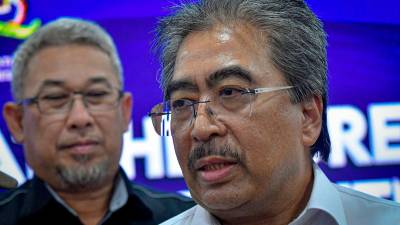KUALA LANGAT: Malaysia is advancing toward recognition as a low-risk country in palm oil production through its mandatory Malaysian Sustainable Palm Oil certification programme.
Plantations and Commodities Minister Datuk Seri Johari Abdul Ghani confirmed the government is compiling current data to demonstrate sustainability progress to the European Union.
“One of the processes is the continued submission of accurate data,” he told reporters after accompanying European Commissioner Jessika Rosswall on a visit to palm oil facilities.
Johari explained that different ministries previously managed plantation oversight and forestry data reporting to the Food and Agriculture Organization.
He emphasised that detailed methodology determines whether countries receive low, standard, or high-risk classifications under European Union regulations.
The minister identified the national traceability system as a key development that monitors palm oil from plantations through mills and refineries.
“We must be consistent, and I believe that it’s just a matter of time, we will be able to achieve the low-risk classification,” Johari stated.
Malaysia currently holds a standard-risk classification under the European Union Deforestation Regulation which requires deforestation-free exports.
Commissioner Rosswall toured the Palm Oil Experience Centre Sustainability Gallery to learn about Malaysia’s forest governance and supply chain transparency efforts.
Her visit included Kampung Sungai Judah where she observed regenerative farming and sustainable harvesting practices supporting indigenous communities.
The Malaysian Sustainable Palm Oil certification became mandatory in 2020 as part of the nation’s sustainability commitment. – Bernama
